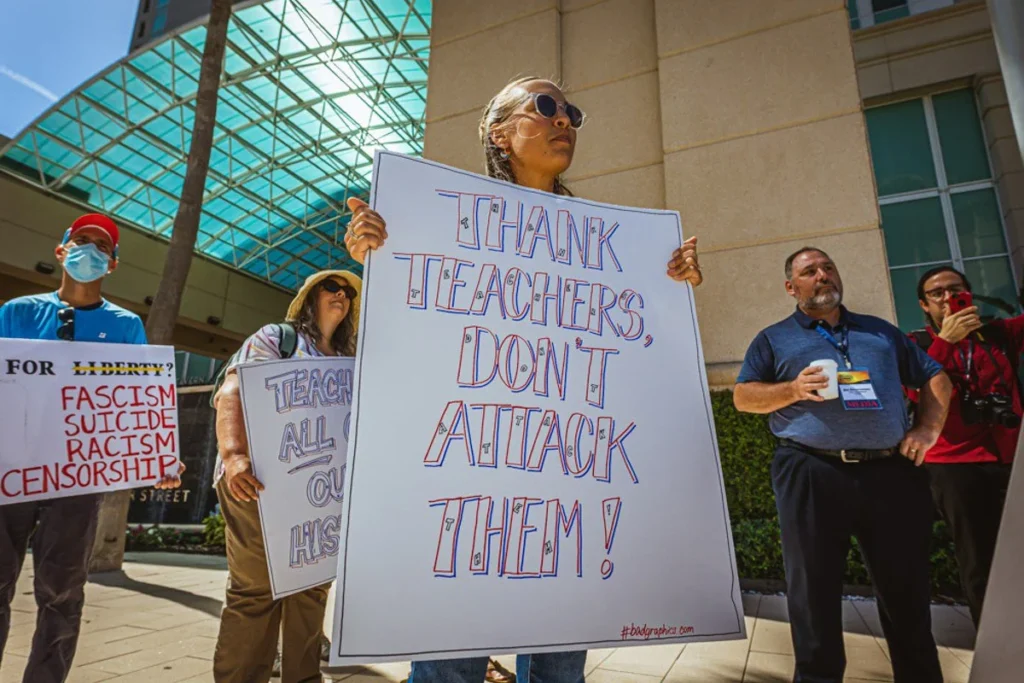Judge hears challenge to Florida teacher pronoun law

In a courtroom in Tallahassee, a federal judge presided over a significant legal battle concerning a Florida law that regulates the use of personal pronouns and titles by educators in schools. This law, enacted in 2023 by the Republican-led Legislature and signed by Governor Ron DeSantis, has sparked controversy and become the subject of intense scrutiny, particularly regarding its impact on LGBTQ individuals.
The plaintiffs in this case, Katie Wood, a transgender teacher from Hillsborough County, and AV Schwandes, a nonbinary teacher dismissed from Florida Virtual School, are seeking preliminary injunctions as part of their lawsuit challenging the constitutionality of the law. They argue that the law infringes upon their First Amendment rights and violates federal civil rights protections.
Legal representatives for the Florida Department of Education and other defendants contend that the Legislature has the authority to establish educational policies that align with the state’s objectives and parental rights. They defend the law as a means to maintain clarity regarding biological sex, emphasizing the importance of adhering to assigned sex at birth.
Central to the dispute is a provision of the law that prohibits school employees from using a student’s preferred personal pronouns or titles if they do not correspond with the student’s assigned sex at birth. This provision, argue the state’s attorneys, aims to prevent confusion and uphold the state’s stance on sex as a biologically determined characteristic.
However, plaintiffs’ counsel, led by attorneys from the Southern Poverty Law Center, assert that such restrictions are not only illogical but also discriminatory. They argue that pronouns and titles are fundamental aspects of one’s identity, particularly for transgender individuals, and that enforcing contrary pronouns amounts to erasure and discrimination.
During the proceedings, Chief U.S. District Judge Mark Walker posed probing questions, particularly regarding the timing of the plaintiffs’ legal action. Katie Wood, who transitioned to a woman in 2020 and legally changed her name, faced resistance from school officials who insisted on referring to her as “Mr.” or “Teacher” instead of “Ms.” Her experience underscores the personal and professional challenges posed by the law.
Similarly, AV Schwandes, who uses they/them pronouns, was terminated from their position after refusing to comply with the pronoun restrictions. Their situation highlights the potential consequences faced by educators who defy the law, including the risk of losing their teaching licenses.
The lawsuit, which names multiple defendants including state education authorities and school boards, also alleges violations of Title VII of the Civil Rights Act of 1964, citing discrimination based on sex. Moreover, the state’s financial commitment to defending the law, with legal costs exceeding half a million dollars, underscores the significance of the legal battle.
As the court deliberates on the preliminary injunctions, the outcome of this case holds implications not only for the rights of LGBTQ individuals but also for the broader discourse surrounding educational policies and civil liberties in Florida. Judge Walker’s forthcoming decision will undoubtedly shape the trajectory of this contentious issue and its impact on educators and students across the state.
